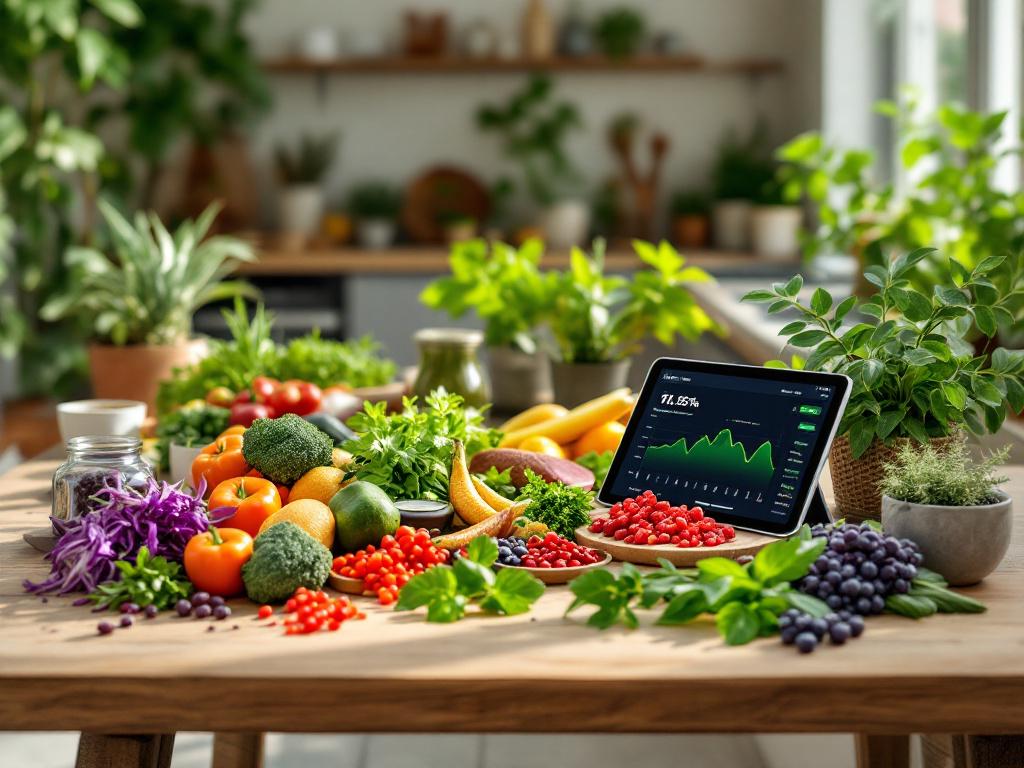News
The Future of Nutrition: When Food Becomes Personalized Medicine
2025 is proving to be the year of personalized nutritional revolution, with new studies suggesting that our organs age at different rates, meaning nutrition could be tailored to support each individual's unique aging process. This discovery is completely redefining the concept of healthy eating, transforming it from a universal approach to precision-based science.
Researchers have identified what they call the "differential biological clock," a mechanism through which each organ in our body follows its own aging rhythm. The heart might be "thirty years old" while the liver shows forty, and the kidneys could be biologically younger than both. This individual variability requires a completely new nutritional approach, where nutrients are selected and dosed based on the specific needs of each organ system.
Research has shown how this nutritional personalization can have profound effects not only on physical health, but also on emotional and spiritual well-being. When the body receives exactly what it needs, an equilibrium is created that promotes higher states of consciousness and greater connection with one's inner self.
Particularly interesting is the approach to elderly people, where appetite decreases with age, but nutrient requirements increase. This paradox is resolved through the use of high-density functional foods, capable of providing maximum benefit with minimum volume. Superfoods like spirulina, goji berries, and marine algae are becoming protagonists of targeted nutritional protocols.
The movement toward personalized nutrition is also influencing spiritual practices related to food. More and more people are discovering how conscious eating, calibrated to their unique biological needs, can become a form of active meditation. The process of selecting, preparing, and consuming food becomes a ritual of deep connection with one's body and with nature.
Experts predict that by the end of 2025, personalized genetic tests and biomarkers will become common tools for creating individual dietary plans. These will not be limited to preventing diseases, but will aim to optimize cognitive performance, emotional stability, and spiritual connection capacity.
Technology plays a fundamental role in this transformation: artificial intelligence apps analyze biometric data in real-time, suggesting instant dietary modifications based on stress levels, sleep quality, and hormonal fluctuations. This dynamic approach transforms nutrition from a static routine to a fluid and responsive practice.
Researchers have identified what they call the "differential biological clock," a mechanism through which each organ in our body follows its own aging rhythm. The heart might be "thirty years old" while the liver shows forty, and the kidneys could be biologically younger than both. This individual variability requires a completely new nutritional approach, where nutrients are selected and dosed based on the specific needs of each organ system.
Research has shown how this nutritional personalization can have profound effects not only on physical health, but also on emotional and spiritual well-being. When the body receives exactly what it needs, an equilibrium is created that promotes higher states of consciousness and greater connection with one's inner self.
Particularly interesting is the approach to elderly people, where appetite decreases with age, but nutrient requirements increase. This paradox is resolved through the use of high-density functional foods, capable of providing maximum benefit with minimum volume. Superfoods like spirulina, goji berries, and marine algae are becoming protagonists of targeted nutritional protocols.
The movement toward personalized nutrition is also influencing spiritual practices related to food. More and more people are discovering how conscious eating, calibrated to their unique biological needs, can become a form of active meditation. The process of selecting, preparing, and consuming food becomes a ritual of deep connection with one's body and with nature.
Experts predict that by the end of 2025, personalized genetic tests and biomarkers will become common tools for creating individual dietary plans. These will not be limited to preventing diseases, but will aim to optimize cognitive performance, emotional stability, and spiritual connection capacity.
Technology plays a fundamental role in this transformation: artificial intelligence apps analyze biometric data in real-time, suggesting instant dietary modifications based on stress levels, sleep quality, and hormonal fluctuations. This dynamic approach transforms nutrition from a static routine to a fluid and responsive practice.



